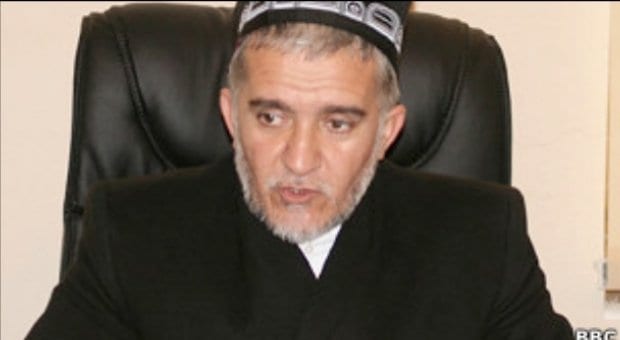Tajikistan’s chief mufti, Saidmukarram Abdulkodirzoda, has condemned homosexuality and said that nations that allow it are “punished severely,” Interfax reports.
“I am ashamed that this topic is to be discussed in the mosque. Unfortunately, I have heard about the homosexual orientation of educated and cultural people, who refused relationships with their wives and women and who commit the sin of sodomy,” he said Feb 7. “I warn you against such sinful behaviour.”
The chief mufti is a head interpreter of Islamic law in the central Asian country.
Tajik social scientist Zulaiho Usmonova told Interfax that Abdulkodirzoda’s speech is dangerous because, even though homosexuality is no longer illegal in Tajikistan, it will funnel violence toward gay people.
“Now people who hardly live and survive as it is can easily direct their aggression, anger and discontent due to financial issues towards sexual minorities and generally towards anyone they will consider to be one,” Usmanova said. “To issue a fatwa on homosexuality . . . is insensible, short-sighted and very dangerous amid the current situation and the state of society.”
Tajikistan is the poorest of the post-Soviet states, with most of the population living on less than $2 a day.


 Why you can trust Xtra
Why you can trust Xtra


